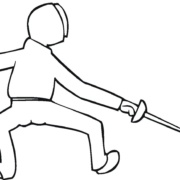Real Words about Talking to Judges and the Other Side
Real Words about Talking to Judges and the Other Side
If you are being sued for debt and representing yourself – that’s called “pro se” – you’re going to be talking to judges and also to the lawyer for the other side. That presents special challenges for pro se defendants, and particularly pro se debt defendants.
The first thing you must remember is that any FACTUAL thing you say to anybody can be taken as an “admission.” That means, any fact you say that could hurt you will be regarded as proven. That can be huge in debt cases where debt buyers often cannot prove things with legitimate evidence. If you say “I know I owe…” or “I know I did…” or “You told me…” or anything else that leads to a factual statement, that fact will be regarded as proven. Not BY you, incidentally, but AGAINST you. So don’t try to get cute and say, for example, “I know you can’t prove your case.” The rule only applies to what are called “admissions against interest” and it’s a one-way street: you can’t make admissions for the other side. Is that clear?
Talking to Judges
When you’re talking to judges, they may simply ask you, for example, whether you used or had a credit card or something along those lines. You may be disputing, primarily, whether the debt collector has a right to collect from you, which could be a completely different issue, but if you admit you got the credit card you will lose the case 99% of the time. You must resist the temptation to answer such a question with an admission. You can say, instead, “that’s one of the things the other side has to prove, and I’m not admitting it.”
You are not a witness under oath when you’re talking to the judge in open court unless you are, in fact, testifying, and you should not feel required to make admissions. If the judge presses you very hard, simply say you don’t think so.
Talking to the Other Lawyer
If the lawyer for the other side asks you point blank for some similar admission while you’re negotiating or haggling over discovery or at any other time than while you are under oath, you should simply say you “deny” it. That’s what you’re doing by your denial of the allegation in your answer.
Some Hard Facts about Judges and Lawyers
Now let’s go to some “unwritten” facts, you might say. And they’re frankly not going to be pleasant to hear, but you need to know them. Both judges and the other side – lawyers and their minions – regard you as socially inferior. You may feel it and feel intimidated, or you may not even feel it, but most of the time it is a simple fact. They do not respect you in a fundamental way.
With judges that can never be remedied. They can respect your intelligence and your willingness to compete, shall we say, and they like fighters, but they are in a position of power over you that is virtually absolute, and they’ve been in that position or some similar position for a long, long time. This gives you kind of a delicate task which we’ll come back to in a minute, but first we’ll talk about the lawyers and the other side generally.
Lawyers don’t respect you, either, and neither, most especially, do their owners the debt buyers. Again, you cannot fix that, but you must treat them, as much as you possibly can, as your equals. They’re not your parents and will never, under any circumstances, do anything in your interests that doesn’t help their interests, so do not ask them for guidance in any way. Ask me. Or ask a trusted friend. And then do your research. But when you’re talking to the lawyer you should be aware of the power dynamic and resist it. I’m not saying to be rude or overbearing; I’m saying to keep your cool and treat the lawyer the way you’d treat anyone else you’re in a professional relationship with. Because that’s what you are.
Believe me, though, they usually start with contempt for you, and that will never change unless you fight and win. You fight and win by standing up for your legitimate rights, keeping your cool, not making admissions, and forcing their hand where possible. Eventually, if you do these things, they’re likely to develop a sort of grudging admiration for you – fighters like fighters, in a way. They respect that about each other. But they’re never going to invite you to the boathouse, if you know what I mean. Know that fact.
Back to Judges
Now let’s get back to judges, because your relationship to them is much more complicated.
Your job, as an advocate, is to instruct the judge on what the law requires, as you understand it. If the other side is suing you for a debt they cannot prove they own, you have to tell the judge that that failure to prove ownership requires they lose the case. When you object at trial or in motions, for another example, you have to tell the judge why legal precedent in your state requires that your objection be sustained.
Lawyers do this all the time, although even lawyers handle judges they don’t know extremely well, with kid gloves. And your job is much much harder because the judges regard you as socially inferior. You still have to tell the judge what the law requires, and you can’t mince your words about that. But never, ever, interrupt a judge, raise your voice, or lose your cool. Don’t forget that judges can make mistakes (and so can you, of course), so work with that. It doesn’t mean they’re against you – it doesn’t usually mean much of anything. It’s usually impersonal, and even if it isn’t you have to act like it is.
Remember that judges are in a god-like position over you, and a lot of them seem to think they are god, too. If they tell you to shut up or it’s over, they’ve ruled on a question, they expect you to thank them! They do, and it’s standard. The judge says, “I’ve overruled your objection,” and you say, in response, “Thank you your honor.”
It could seem disgusting, but it’s tradition as much as anything else, and you are respecting their position when you say that more than their person.
So you have a challenging balancing act with judges. You have to tell them what the law requires and what makes you think so – and they actually may not know or remember. But you must keep in mind that their power is nearly absolute, so you should usually treat your arguments as “reminders” to them of what you expect they already know. And yet you are their intellectual equals, too, so you should stand up for the right of your position even if the judge is questioning it.
With all that said, a lot of judges are intelligent, nice people. ALL of them are, at least some of the time to some people. Recognize that fact and understand that they play a role in this case, and that role is to make judgments, some of which you aren’t going to like. Don’t personalize their rulings, and don’t think that because they disagree with you on some point that they’re against you on all of them. Unless you’re a competitive athlete or a lawyer, this is probably way out of your experience, but referees in football are required to look at every play and make their best judgment regardless of who they like better. They try to do that, and so do judges, most of the time. Understand that fact – it’s just their job.
When you’re talking to the other side, but especially when you’re talking to a judge, remember to listen carefully. So often people just listen to what others are saying primarily as a way of marking time – you have something to say, and you’re just waiting for them to finish so you can say it. Don’t do this in the law. Listen to what they’re saying – it’s usually important.
And make sure the things you say are important, too. Stay on point and remember that anything you say that seems to go off-point will cost you respect and attention. No one wants to hear your feelings or difficulties. They want to hear what the law is and what it requires. If you’re representing yourself, you’re going to have strong feelings, but keep them in check and keep them quiet. Talk about the few things that matter to whatever you’re discussing.
Remember that above all, the case that means so much to you means very little to the other side or to the judge. It’s just a job to them, which they may take more or less seriously, but for you it is much more important. Act like the case is important to you and work steadily and hard, and stay humble. Hope the judge will take his or her responsibilities seriously enough to be fair and listen to you when it matters, and that the lawyer on the other side is as uninspired as most of them are. Keep those things in mind and you’ll have a great chance to win.
[Article updated 3/26/25]





